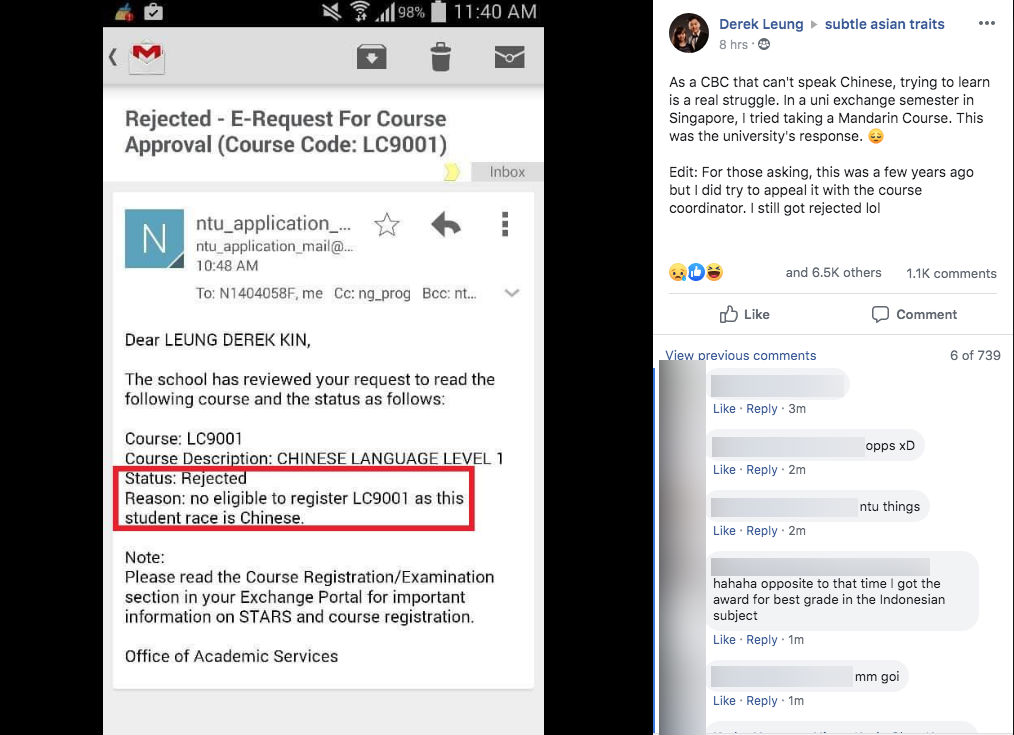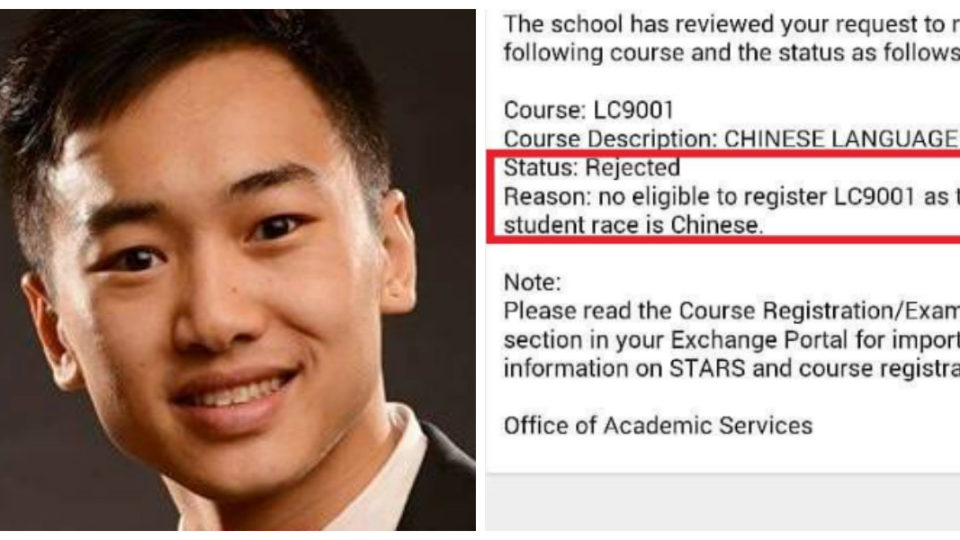While nearly every Chinese-Singaporean gets a chance to learn some Mandarin at school, they’d have no such luck in a place like Canada.
Enter Derek Leung, a Canadian exchange student of Chinese descent, whose desire to study Chinese at Singapore’s Nanyang Technological University a few years ago came crashing down when he was rejected for, well, being too Chinese, as he told Coconuts Singapore.
“I had not learned Chinese all my life so I thought living in a country where people spoke Chinese would be a good opportunity,” he said.
Leung earlier today had recounted the experience on the popular Subtle Asian Traits Facebook group.
“As a [Canadian-Born-Chinese] that can’t speak Chinese, trying to learn is a real struggle. In a uni exchange semester in Singapore, I tried taking a Mandarin Course. This was the university’s response,” the mechanical engineer wrote of his failed 2015 enrollment.
He shared what he said was the university’s email rejection letter stating he was not “eligible” to register for the Level 1 course “as this student race is Chinese.”
Leung, now 26, felt the rejection was born of an assumption he spoke Chinese growing up and would have an advantage over his classmates. Which he didn’t.
Derek said he was disappointed and ended up settling for a business management elective.
“I tried to [appeal] it with the course coordinator but she just said that since my family was Chinese I would have an advantage and therefore I could not take it,” he said.
Coconuts Singapore reached out to the school, which responded Wednesday to say it actually dropped the policy a year after Derek’s rejection.
“We are sympathetic to Mr Derek Leung, whose case happened in 2015. The previous policy aimed to give opportunities to students to learn non-native languages. Since 2016, ethnicity, race or nationality are no longer considered when signing up for language courses,” an unnamed university rep said in a statement.
Students just need to declare they don’t have prior knowledge of the language.
The identity issue struck a nerve with Subtle Asian Traits, a group dedicated to the Asian diaspora. It drew huge interest with more than 8,000 reactions and 1,000 comments by Tuesday afternoon. Some shared similar experiences.
User Encarni Tan described facing the same situation in Australia.
“Dude I tried to study advanced Mandarin in an Australian university too but I was rejected due to my race. They don’t want anyone to get higher scores due to ethnic backgrounds. They find it unfair to students from other races,” she wrote.
It happens in Malaysia too, apparently.
“Same thing happens here in Malaysia. Sending hugs all the way from Malaysiaaaaaa,” a Kok Chin Siang said.
While Leung didn’t get to learn the language at all while in the Lion City, he did lend his English language expertise to his Singaporean mates during group projects.
“My main interaction with local students was helping my roommate or project team members with English reports. For the most part they were fine … I noticed some Singlish spilling into their grammar,” he said.
Leung didn’t expect his post to go viral in the group, which has 1.6 million members.
“I didn’t realize that this would get so much attention. I posted it for a funny joke,” he said.
Leung graduated from university in 2016 and helped found a developer that makes a mobile app for those seeking “culturally diverse” recipes catered to different dietary restrictions.
He hasn’t returned to Singapore since the exchange program.

Related:




